
Ketozig Shampoo
Manufacturer
Albia Biocare
Salt Composition
Ketoconazole (2% w/v) + Zinc pyrithione (1% w/v)
Key Information
Short Description
Ketozig Shampoo is a combination of two antifungal medicines that effectively treat dandruff, killing the fungi that cause the infection and relieving itching and irritation.
Dosage Form
Shampoo
Introduction
Ketozig Shampoo is only meant for external use and should be used as advised by your doctor. This medicine should be used regularly to get the most benefit from it. Do not use more than you need, as it will not clear your condition faster and may only increase the side effects. Make sure not to leave it on the scalp for more than 5 minutes. If it gets into your eyes, nose, or mouth, rinse it with water. Ketozig Shampoo is usually safe, however, it may cause burning, irritation, itching, and redness at the application site. These side effects are usually mild and self-limiting. Serious side effects are rare. It is not likely that other medicines you take by mouth or injection will affect the way Ketozig Shampoo works, but talk to your doctor before using it if you have recently used another medicine for dandruff. The medicine is not recommended for pregnant women. Pregnant and breastfeeding mothers should consult their doctors before using Ketozig Shampoo.
Directions for Use
Use it as advised by your doctor or check the label for directions before use.
Safety Information
Side Effects
No common side effects listed
How it works
Ketozig Shampoo is a combination of two antifungal medicines: Ketoconazole and Zinc pyrithione. It works by destroying the cell membrane of fungi that cause dandruff.
Quick Tips
Leave the shampoo on for three to five minutes before rinsing. Take care to avoid getting Ketozig Shampoo in your eyes. If accidental exposure occurs, rinse immediately with plenty of water. Your usual shampoo can be used as necessary between treatments with Ketozig Shampoo. Do not use this medicine more often or for longer than advised by your doctor. Avoid getting it in the eyes, mouth, or nose. Rinse with cold water if you accidentally get it in these areas. Stop using Ketozig Shampoo and inform your doctor if you notice any irritation or any other skin infection. Inform your doctor if the treated skin area does not improve after 2-4 weeks of treatment.
Related Medicines

Ketamide-AD Shampoo
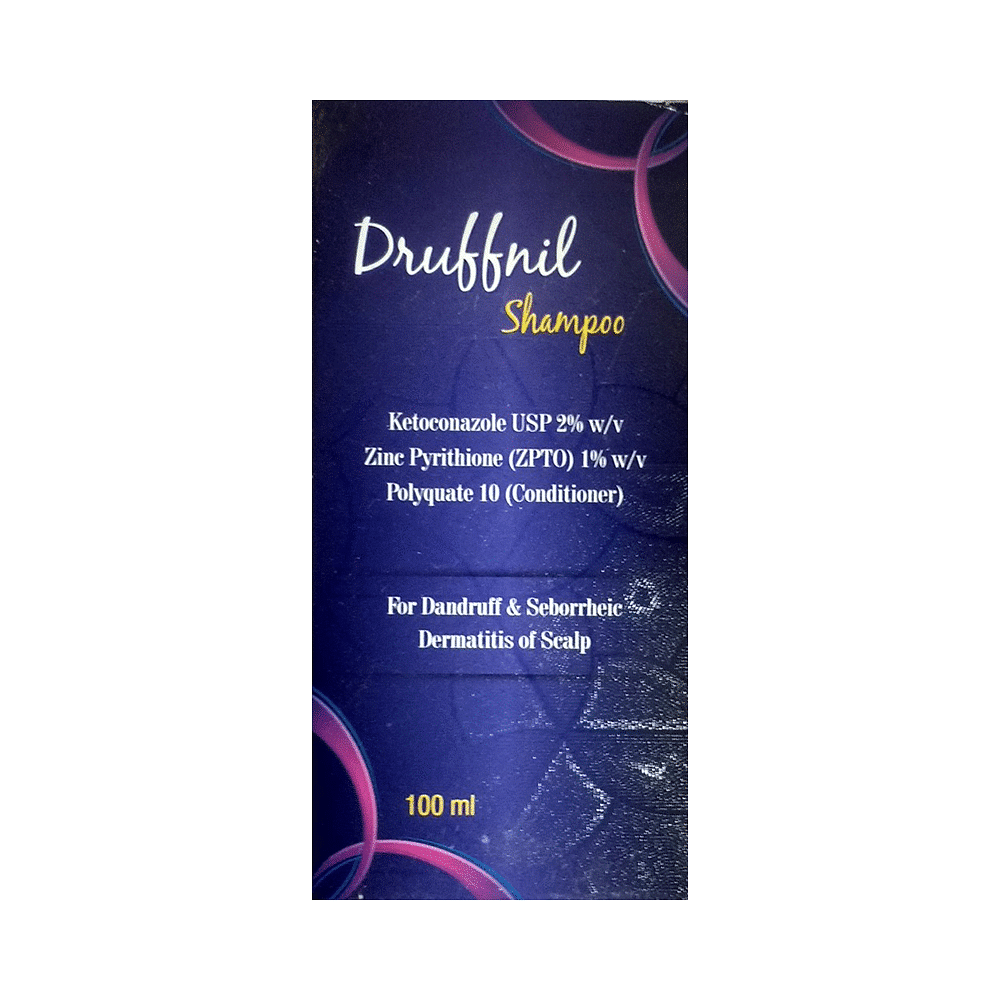
Druffnil Shampoo
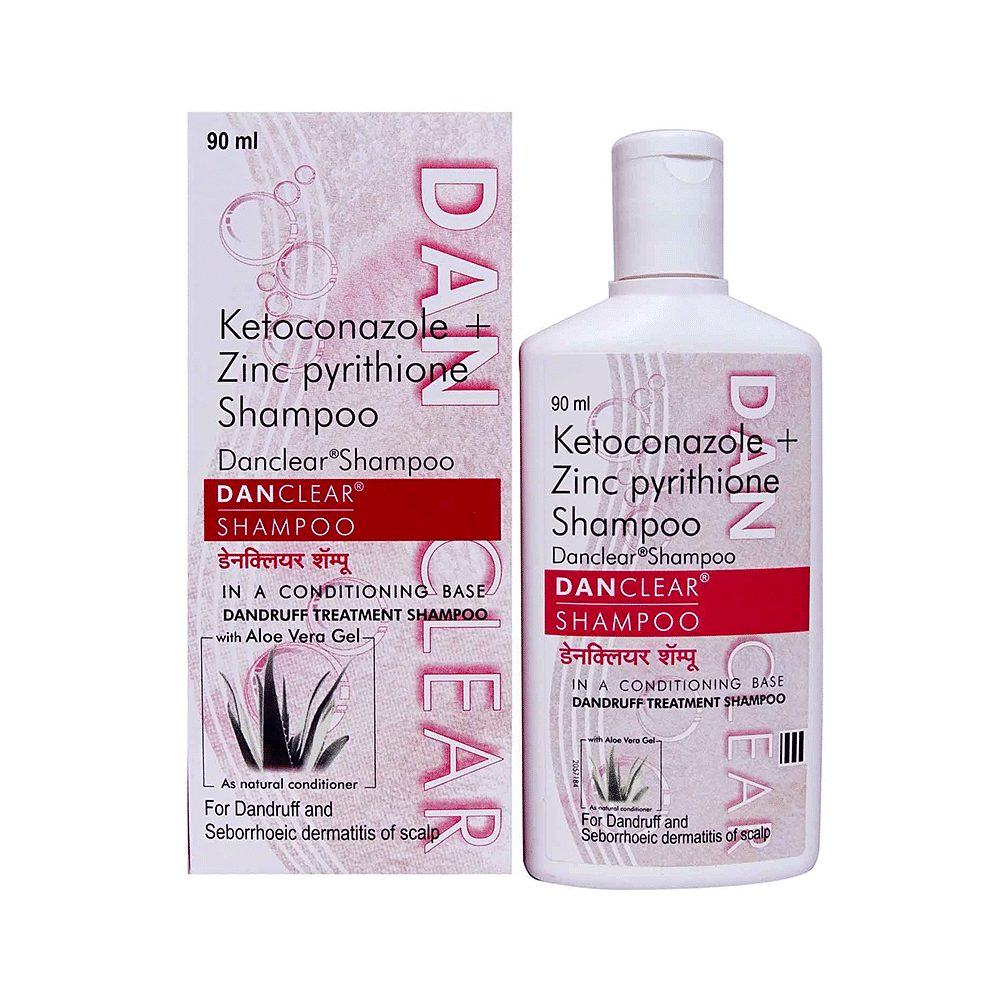
Danclear Shampoo
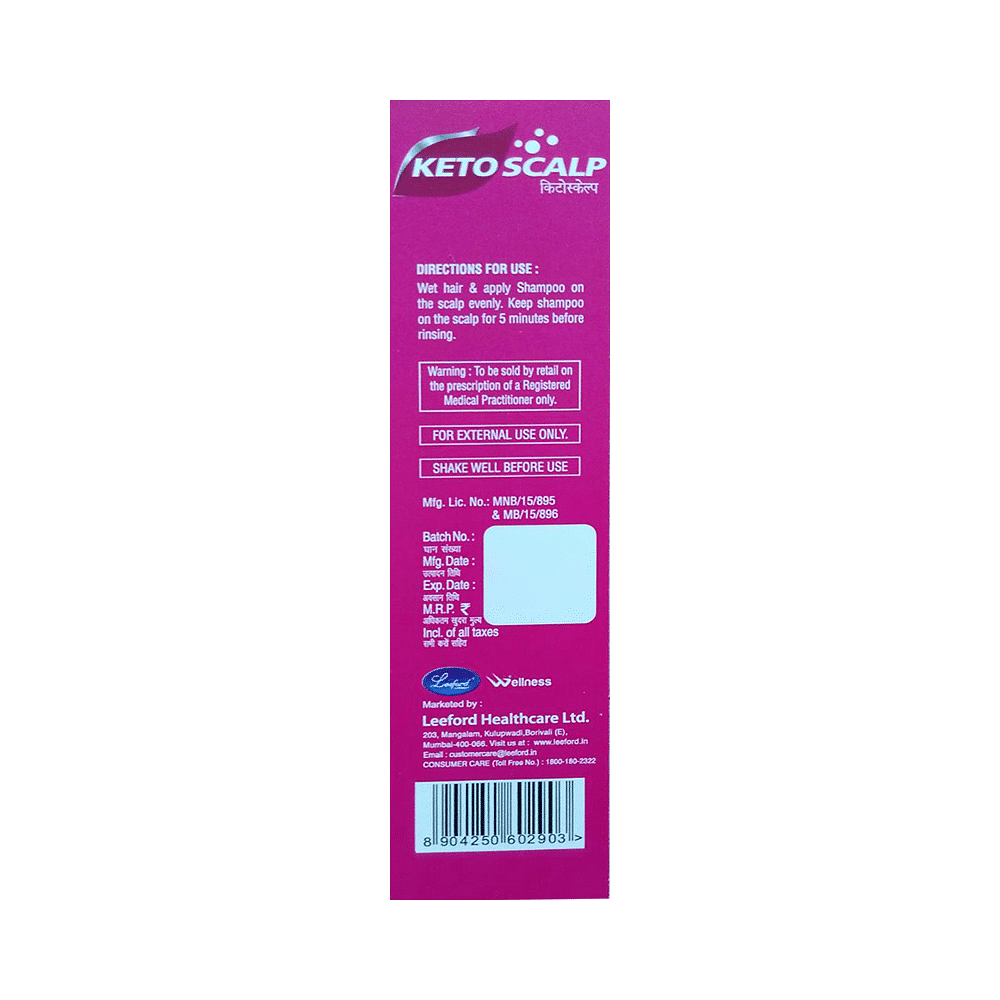
Ketoscalp Shampoo
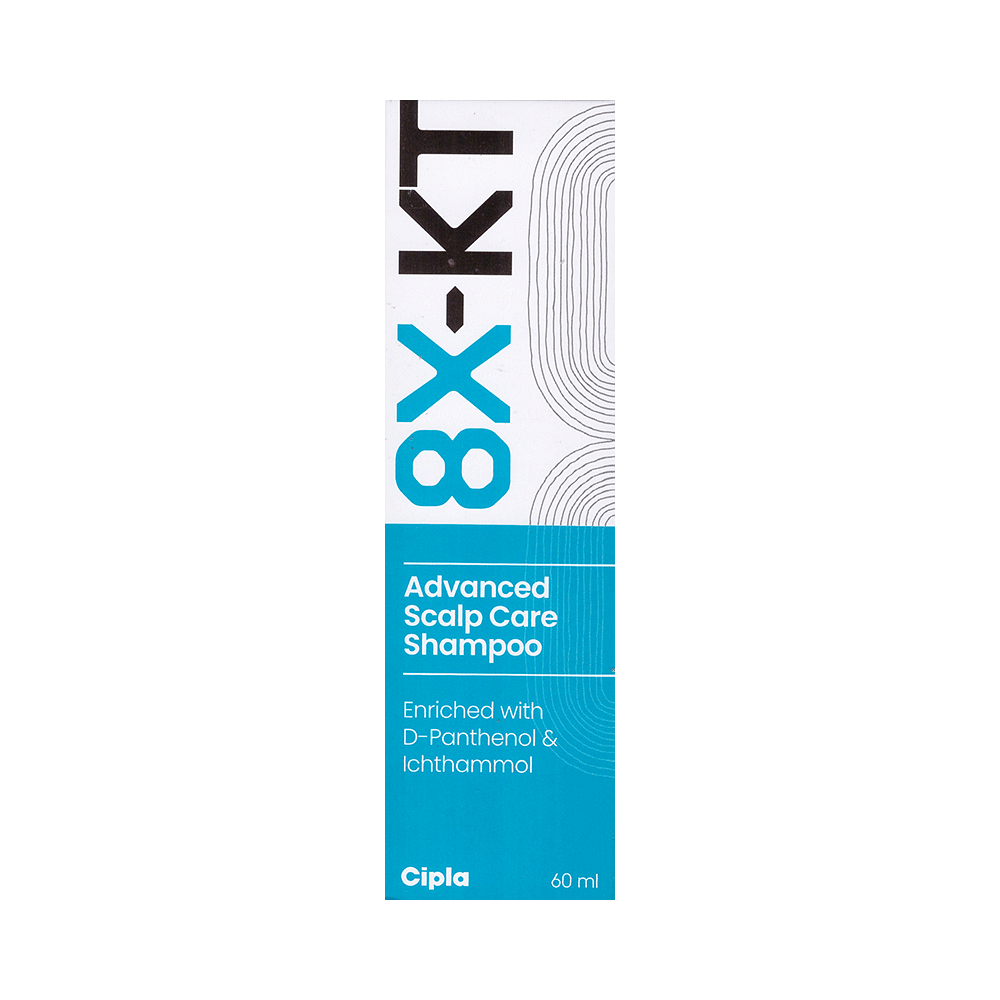
8X-KT Shampoo

Hairdruff Z Shampoo

Denfast Shampoo
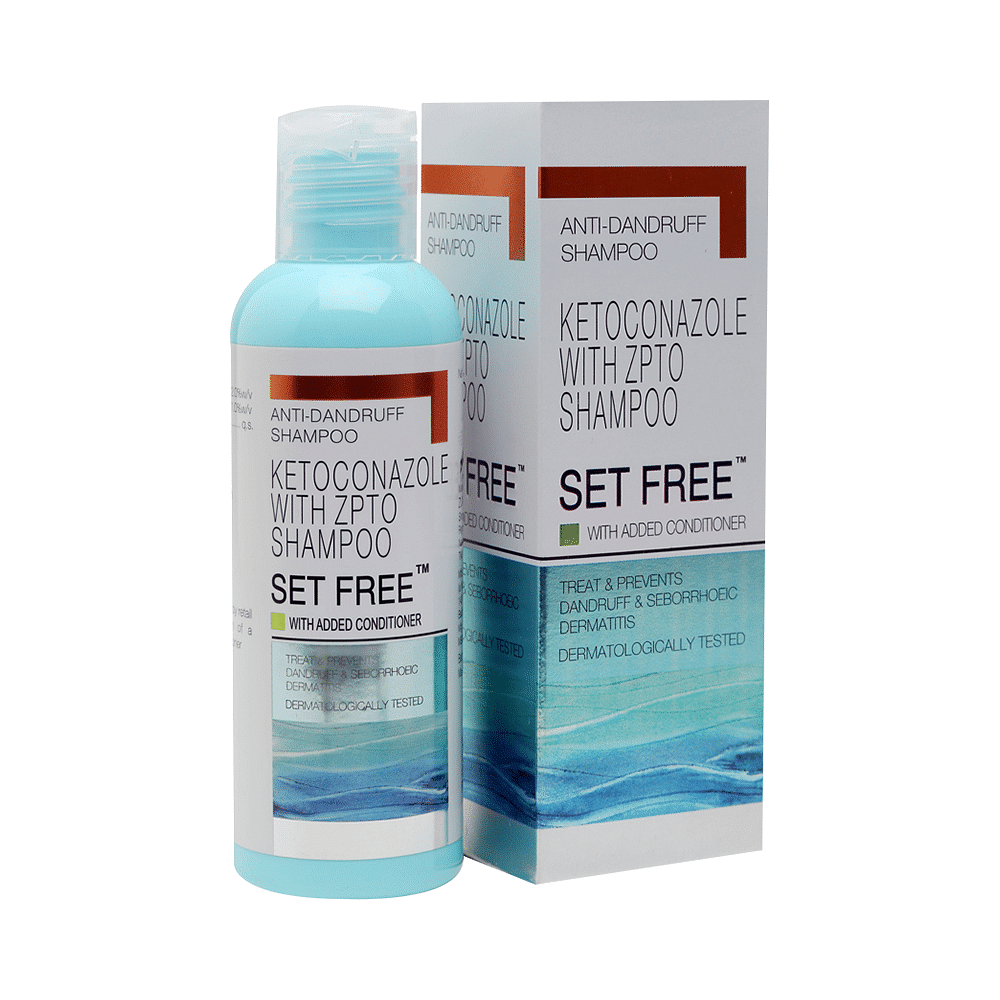
Set Free Anti-Dandruff Shampoo

Nuket ZPTO Shampoo

Klinique Forte Anti-Dandruff Shampoo
Frequently asked questions
How often can I use Ketozig Shampoo as directed by my doctor?
You can use Ketozig Shampoo for the duration prescribed by your doctor. To use, apply the shampoo to your scalp, leave it on for 1-2 minutes, massage gently, and then rinse thoroughly.
Does using Ketozig Shampoo increase the risk of hair loss?
No, Ketozig Shampoo does not cause hair loss. In fact, regular use can help reduce dandruff, which may contribute to hair loss in some cases.
What should I inform my doctor before using Ketozig Shampoo?
Before using Ketozig Shampoo, let your doctor know if you have a history of allergies or are allergic to any medications. This will help ensure your safety and effectiveness of treatment.
How long should I leave Ketozig Shampoo in contact with my scalp?
To avoid irritation or burning sensations, do not leave Ketozig Shampoo on your hair or skin for longer than the recommended duration.
Is dandruff a cause of baldness?
No, dandruff itself does not lead to baldness. However, if you have severe dandruff and a very itchy scalp, excessive scratching can cause hair loss due to trauma from the scratching. If your hair falls out in increased amounts, consult with your doctor.
Can using Ketozig Shampoo dry out my hair?
Ketozig Shampoo is designed for dandruff control on the scalp and should not be used as a regular shampoo for hair. To use it safely, apply to the scalp only, let sit for 10 minutes, then rinse thoroughly followed by your regular shampoo and conditioner.
Can stress contribute to dandruff development?
While stress itself may not directly cause dandruff, it can trigger different scalp conditions, including dandruff, due to increased sensitivity and irritation.


